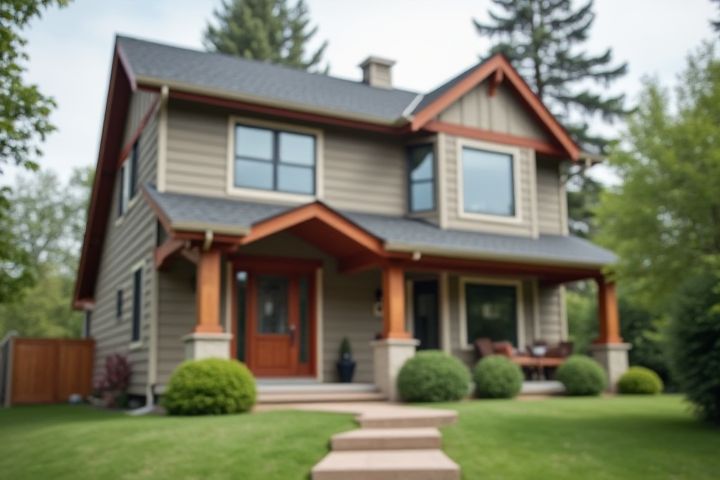
When buying a house, consider the location's proximity to schools, shopping centers, and public transportation, as these factors significantly impact daily convenience. Assess the neighborhood's safety by checking crime rates and talking to residents for insights into community dynamics. Evaluate the property's condition, including the roof, plumbing, and electrical systems, to avoid unexpected repair costs later. Your budget should encompass not just the down payment, but also closing costs, property taxes, and home insurance to understand the overall financial commitment. Research future developments in the area, such as new schools or commercial projects, that could affect property values and your lifestyle.
What To Consider When Buying A House
Budget
Establishing a budget is crucial when buying a house, as it affects your financial stability. Assess your income, expenses, and determine how much you can allocate for monthly mortgage payments, typically recommended at 28-30% of your gross monthly income. Factor in additional costs such as property taxes, homeowners insurance, and maintenance expenses, which can increase the overall budget up to 50-60% of your income. Remember to consider potential future changes in your financial situation that could impact your ability to maintain mortgage payments over time.
Location
Location significantly influences property value and desirability in real estate. Proximity to essential services such as schools, hospitals, and public transportation can enhance your quality of life and investment potential. A neighborhood's safety and growth trends, indicated by crime rates and housing market statistics, also play a critical role. Evaluate local amenities, such as parks and shopping centers, to ensure they meet your lifestyle needs and preferences, ultimately affecting your overall satisfaction with your new home.
Property condition
When purchasing a house, thoroughly assess the property condition to avoid costly future repairs. Inspect the roof for age and potential leaks, as a new roof can cost between $5,000 and $25,000. Evaluate the plumbing system, checking for signs of leaks or outdated materials, since modern plumbing renovations may range from $1,500 to $15,000. Assess the foundation for cracks or moisture issues, as significant repairs can exceed $10,000, impacting your investment and peace of mind.
Neighborhood
When buying a house, neighborhood quality significantly influences your investment's long-term value. Look for areas with a strong sense of community, as these typically foster better relationships among residents. Factors such as proximity to schools--with a rating of 7/10 or higher--and local amenities like parks or shopping centers enhance living experience and property demand. Safety is crucial, so consider neighborhoods with crime rates below the national average to ensure a secure environment for you and your family.
Future growth
When buying a house, consider the projected economic growth of the area, which influences property values. Research historical appreciation rates; an average annual increase of 3-5% is a positive indicator of future worth. Look for infrastructure developments, such as new schools or highways, as they can lead to increased demand and higher property prices. Analyzing demographic trends, such as population growth or job opportunities, will provide insights into the long-term viability of your investment.
Nearby amenities
When buying a house, it's vital to evaluate nearby amenities such as grocery stores, schools, parks, and public transportation options. The proximity of essential services can significantly enhance your quality of life, making daily errands more convenient and accessible. For families, having reputable schools within a short distance can be a determining factor, impacting both education and property value. Additionally, neighborhoods with vibrant recreational facilities, restaurants, and shopping centers often foster a more engaging community atmosphere, appealing to your social and lifestyle preferences.
School district
When buying a house, the quality of the school district plays a critical role in long-term value and lifestyle satisfaction. Research school performance metrics such as standardized test scores, graduation rates, and extracurricular offerings to gauge educational excellence. Consider the district's reputation, reflected in community reviews and local rankings, which can significantly impact your home's resale value. A prime school district may increase property demand, making it a valuable investment for families prioritizing education.
Commute time
Commute time is a crucial factor when buying a house, significantly impacting your daily routine and overall quality of life. A commute of 30 minutes or less is often ideal, as it allows for more leisure time and reduces stress. You should also evaluate transportation options, such as public transit availability and major road access, which can affect both your travel time and freedom. Remember that a shorter commute can enhance work-life balance, so prioritize your daily travel needs when making this important decision.
Resale value
When considering the resale value of a house, prioritize location, as properties in highly sought-after neighborhoods can appreciate by 10% or more annually. Analyze comparable sales in the area to determine market trends and average sale prices; a house priced competitively can sell for 95% to 100% of its listing price. Evaluate the property's condition and age, as homes built after 2000 tend to have modern features that attract buyers, often yielding a higher return on investment. Lastly, assess local amenities and school districts, as homes in proximity to top-rated schools can see resale values increase by 20% or more in some markets.
Home inspection
A thorough home inspection is crucial when buying a house, as it helps identify potential issues that may lead to costly repairs later. Typically, inspections cost between $300 and $500, depending on the property's size and location, ensuring you make an informed decision. Look for a certified inspector with experience in residential properties to assess aspects like structural integrity, plumbing, and electrical systems. Understanding the inspection report, which often includes photos and detailed findings, empowers you to negotiate repairs or price adjustments effectively.
